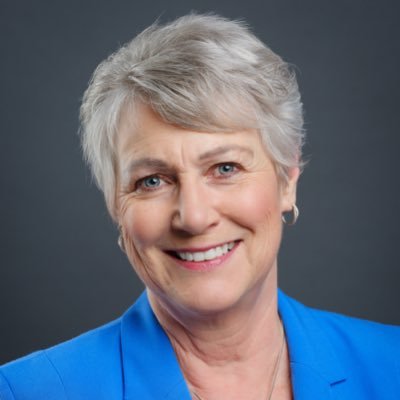Newsletter from MLA/Minister Katrine Conroy
Everyone in our community and in communities across B.C. should feel safe and welcome here. That’s why it’s been concerning to me and my government colleagues that throughout B.C. we’ve seen a rise in racist incidents. While we may not always see it or know about it, these types of incidents do happen in Kootenay West, too.
This is why our government has partnered with United Way’s BC 211 to launch the Racist Incident Helpline. Now, if you or someone you know experiences a racist incident, you can reach out for support and resources to help you navigate the impacts. Racist incidents can have long-lasting impacts on the well-being of individuals and their communities, that’s what makes this helpline so important and that’s why I’m sharing it with you, in hopes you share it with your communities and loved ones.
The helpline is available by phone at 1-833-457-5463 (1-833-HLP-LINE) between 9 am and 5 pm on weekdays. Outside these hours, callers can leave a message with contact information, and someone will call them back the next working day. Callers can access culturally appropriate support in 240 languages. That support could take different forms, depending on the caller’s preferences and needs. It could include referrals to local community support services such as a peer group and individual counselling, or help with reporting to law enforcement.
However, the helpline is not intended to replace emergency services and people in need of immediate assistance should still call 911.
There is also funding available through United Way BC for local organizations interested in being part of the helpline’s referral database. For community organizations that offers services like low-barrier counselling, anti-hate/diversity education, resilience-building and creative expression workshops, or that have their own helpline, funding applications can be found at https://uwbc.ca/program/grants/. I encourage you to share this with any organizations in your community doing this work, to they can get more support to continue to serve and help people who need it.
Racism can come in many different forms, each of which needs to be addressed and acknowledged. The helpline is one more tool in our fight against this form of hate. I hope this helpline can help you or people in your community when they may need it
Premier’s, parliamentary secretary’s statements on Pride Season
June is a time to celebrate & raise awareness of the strength that the diversity of our province offers. We join with community to celebrate the many ways our 2SLGBTQIA+ friends, neighbours, colleagues & family make our province better.
Our government will continue to take actions that further equal opportunities for life, love, community and success in our province. I thank all those who continue to stand up for the rights of others, challenge hate and embrace our shared humanity.
B.C.’s surgical renewal commitment delivers record surgeries
B.C.’s surgical renewal commitment delivered more surgeries for patients than ever for one year ending March 31, 2024. Since April 2020, we have added new staff to surgical services in B.C., including 189 surgeons, 152 anesthesiologists, 313 perioperative nurses, 12 general physician/family physician anesthetists and 106 medical device reprocessing technicians. As our population continues to grow and our health-care system adapts to numerous pressures, our plan to improve access to surgeries for patients is working.
Consultation begins to designate psychotherapy as regulated health profession
The Province is introducing changes to increase patient safety and create more consistent care from counsellors, counselling therapists and psychotherapists. A consultation on the changes is open for one month, following which, the government will decide on formal regulation of psychotherapy. Psychotherapists provide vital support to help people navigate mental-health challenges, so it’s important that their services are consistent, reliable and safe.
Talking about mental health makes everyone safer
June is Men’s Mental Health Awareness Month in Canada. This month, we should work together to inspire hope by breaking the stigma associated with discussing mental health and suicide, both now and in the future. A lack of social support, feelings of isolation, and perceived social stigma can prevent men from seeking help. Let’s create supportive communities where people feel comfortable talking about mental health and suicide, supporting each other, and seeking help when necessary. Together, we can make the world a safer and kinder place.
B.C. minimum wage increased June 1
On June 1, the general minimum wage increased from $16.75 to $17.40 an hour. The increase will help approximately 240,000 workers who currently earn less than $17.40 per hour. We recently passed legislation to ensure that future increases to the minimum rates will happen automatically, based on the previous year’s average inflation rate for B.C.
Supporting early childhood educators strengthens child care
ECE students will benefit from an additional $45 million for the ECE Education Support Fund. The fund provides as much as $5,000 per semester for eligible students. When child care professionals feel supported, children and their families are also better supported and we are all better off.
Exploring BC Parks this summer?
They would like to hear from you. Help them improve our parks.
Survey open to September 16.
Conservation strengthened in Great Bear Rainforest
The Province and Kwiakah First Nation have created a new Special Forest Management Area. The area prohibits commercial harvesting and allows Kwiakah to practice regenerative forestry with the intention of bringing the forest back to its pre-industrial state. This continues our joint work to ensure the Great Bear Rainforest will provide sustainable jobs and healthy forests for future generations.
Hydrogen project will create jobs, fuel B.C.’s clean economy, reduce emissions
Hundreds of jobs will be coming to B.C. as the Province supports a project to accelerate hydrogen infrastructure. HTEC plans to build and operate an interprovincial network of as many as 20 hydrogen refuelling stations (with 18 in B.C.). Producing clean fuels like hydrogen right here in B.C. to replace diesel use for transportation helps to reduce harmful pollution.























